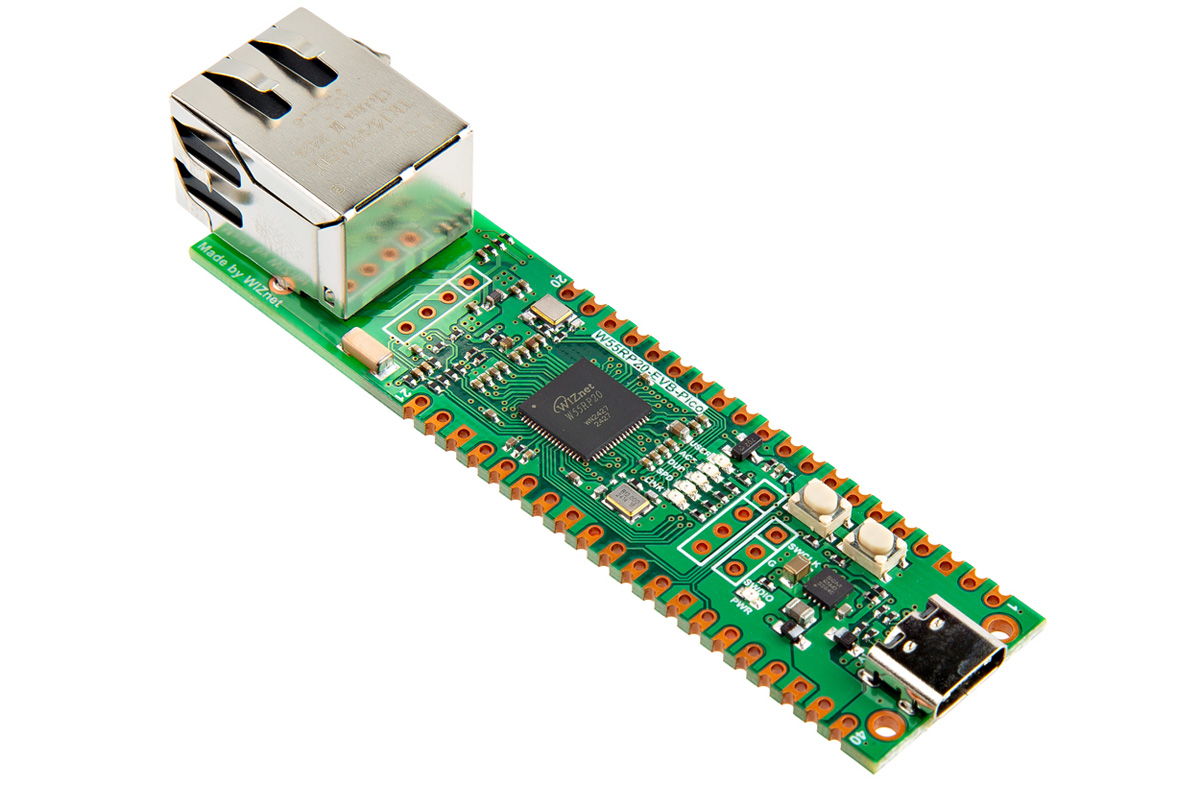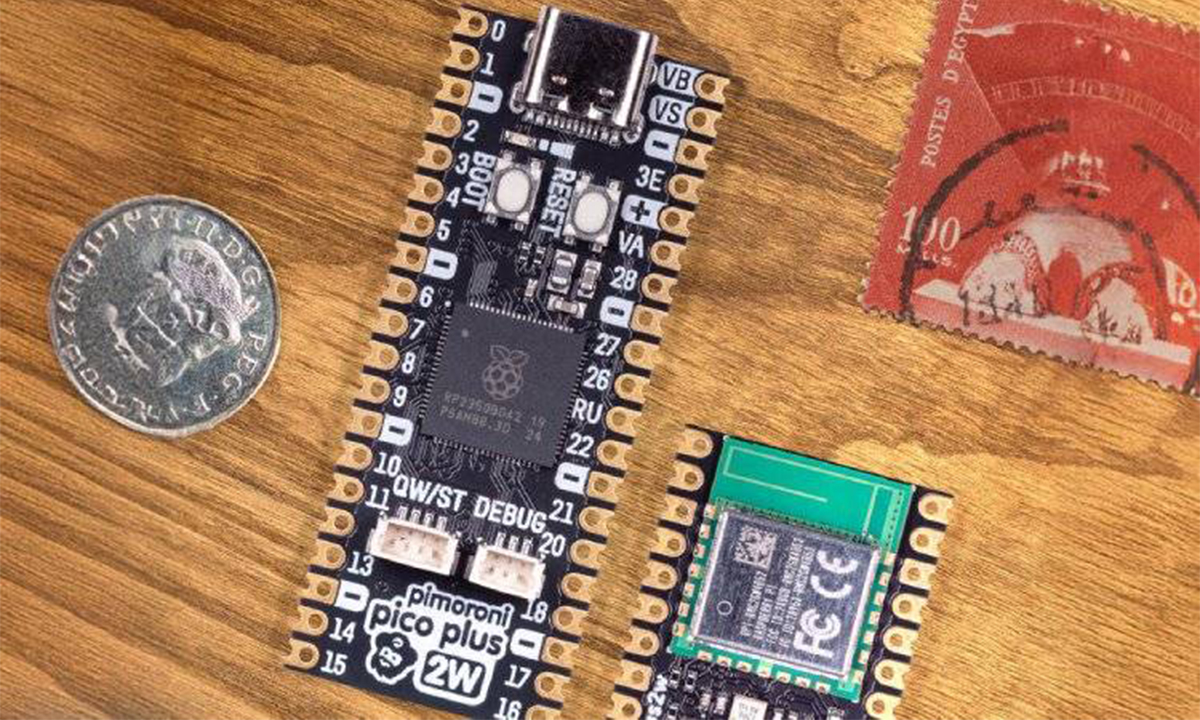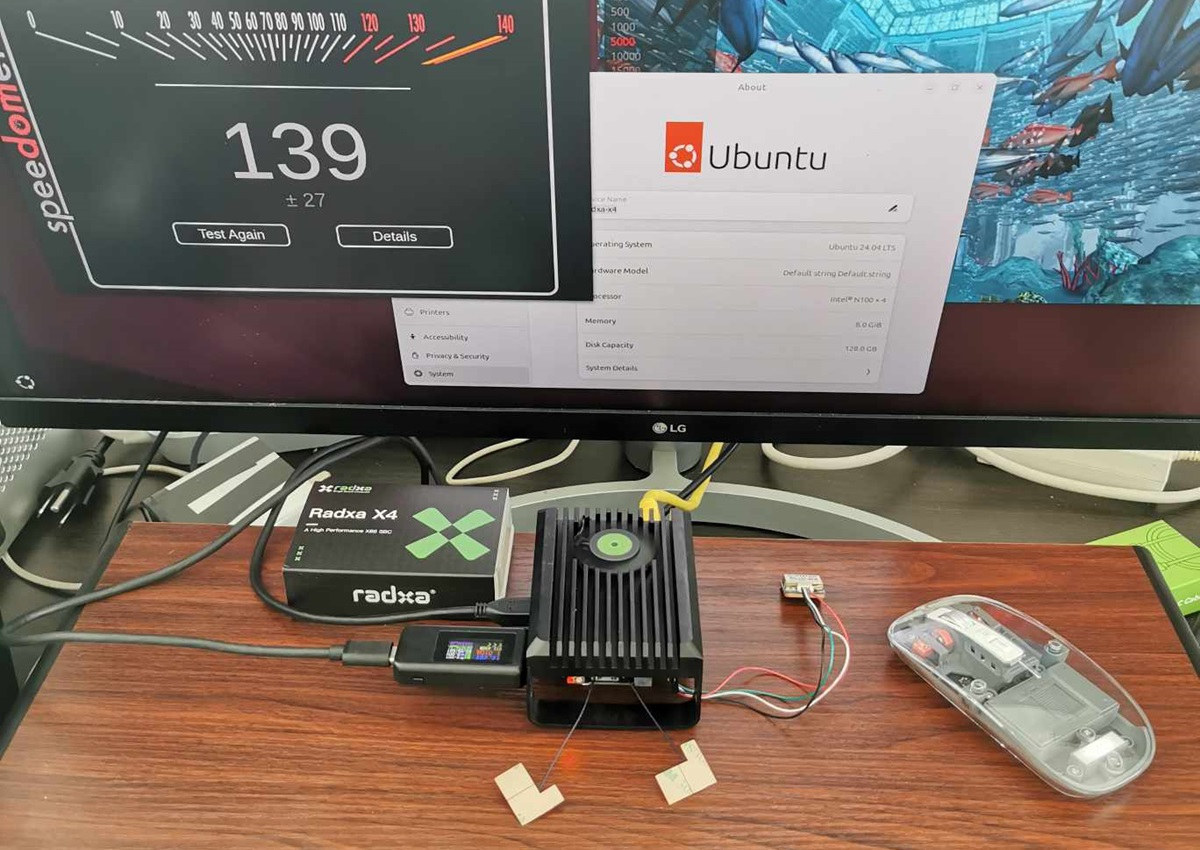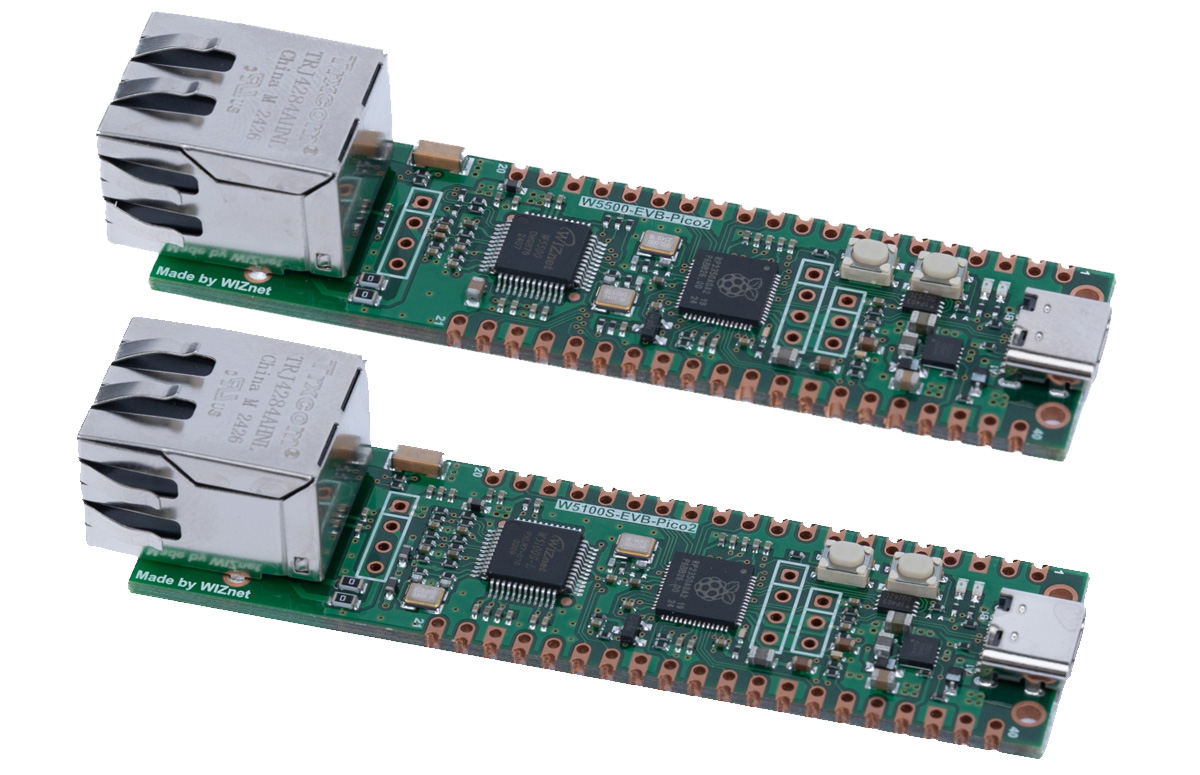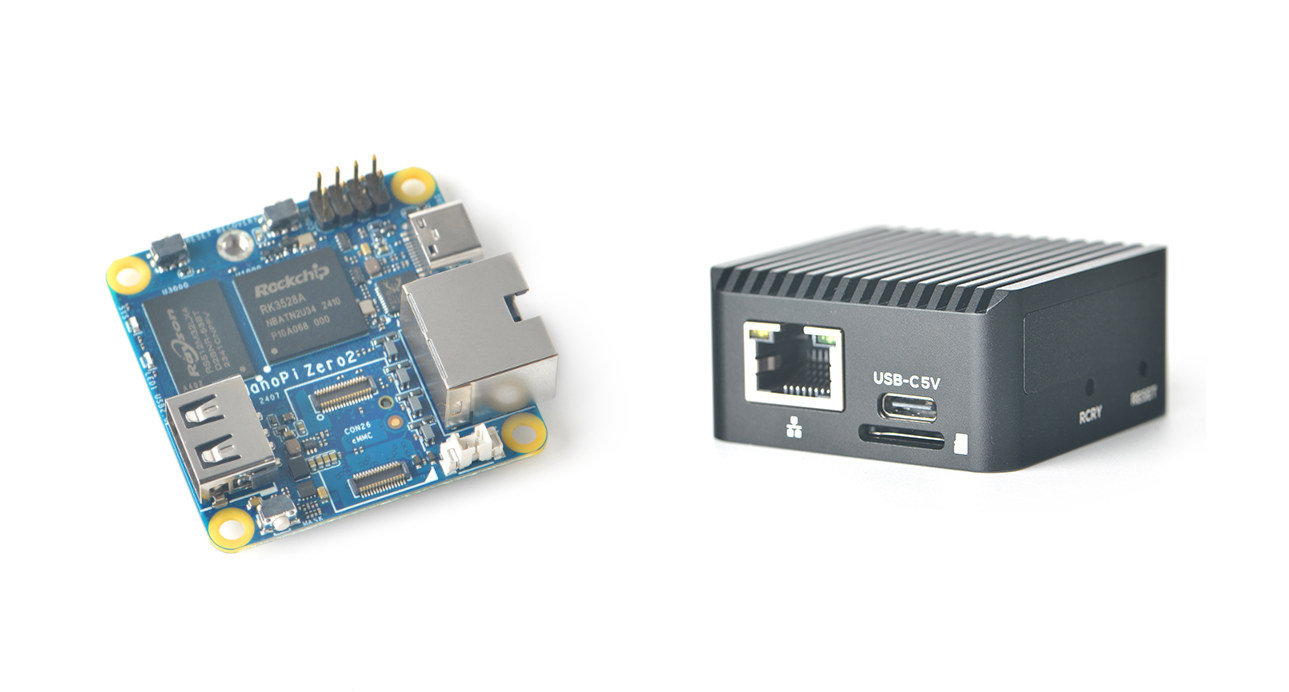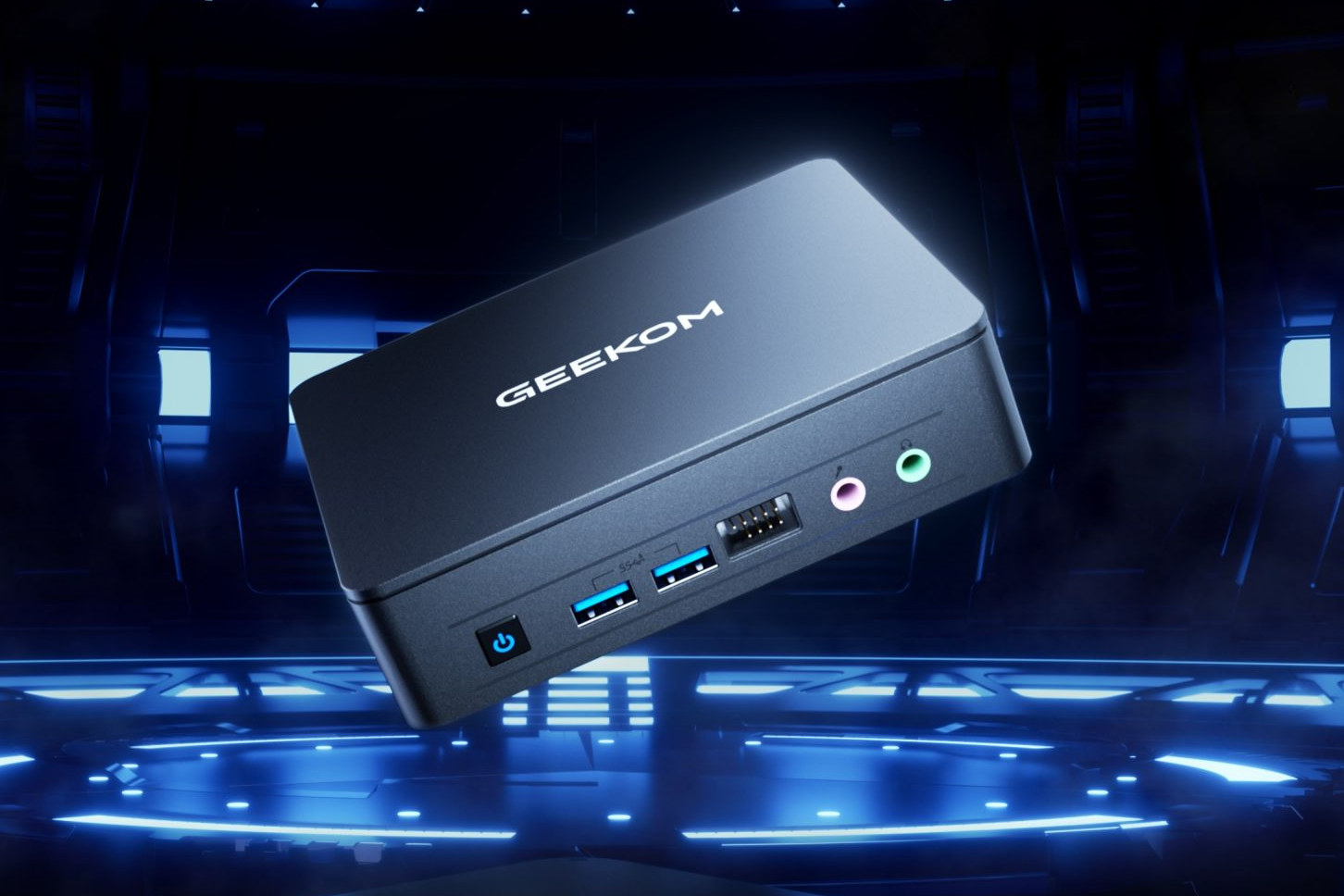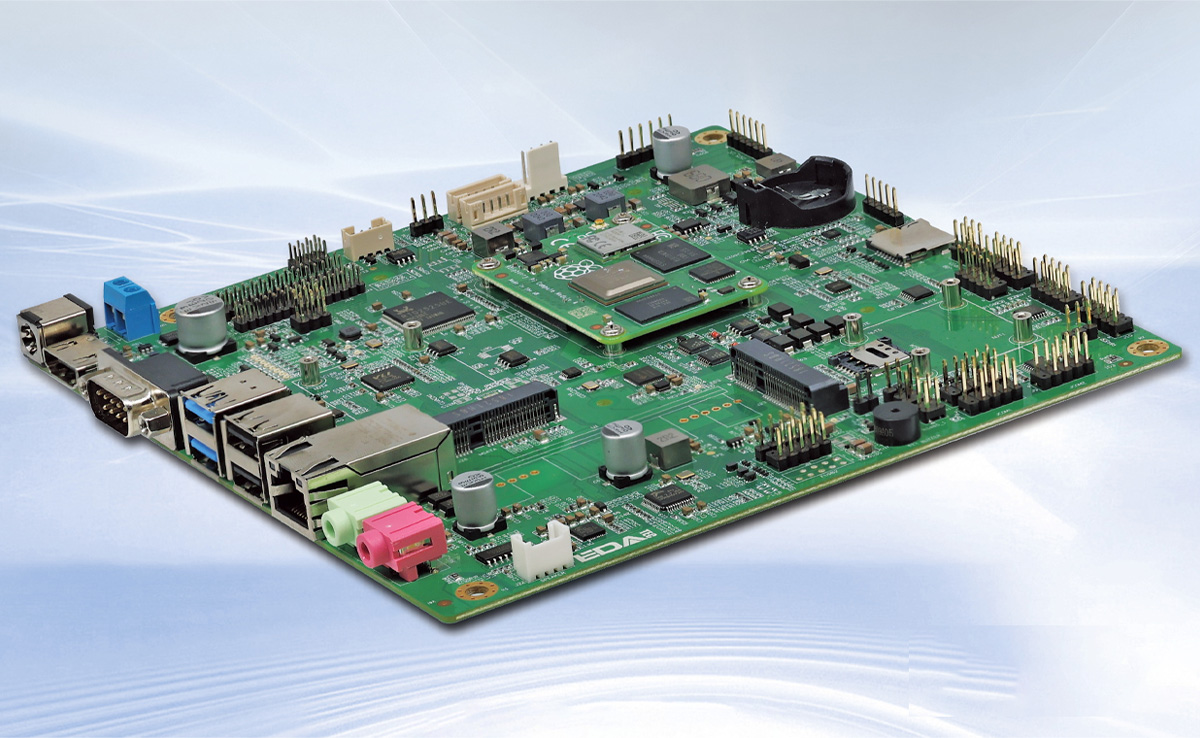Wiznet has recently released the W55RP20-EVB-Pico dev board, a compact board based around the W55RP20 SiP that fuses the Raspberry Pi RP2040 MCU and the W5500 Ethernet controller into a single IC, plus a 2MB flash chip for firmware storage. Just last month we wrote about W5100S-EVB-Pico2 and W5500-EVB-Pico2 dev boards, both the boards have a newer Raspberry Pi RP2350 MCU and external Ethernet controller (W5500 or W5100S). The RP2350 offers additional security features such as One Time Programmable (OTP) memory, secure boot, and Arm TrustZone technology, making it more suitable for secure applications. The W55RP20 on the other hand integrates a W5500 Ethernet controller and the RP2040 in a single SiP which is also pin-compatible with the Raspberry Pi Pico, making it easy to use existing Pico accessories and code examples. W55RP20-EVB-Pico dev board specifications: SiP– W55RP20 microcontroller MCU – Raspberry Pi RP2040 Core– Dual Cortex M0+ cores up […]
Pimoroni Pico Plus 2 W combines RP2350B MCU with Raspberry Pi RM2 Wi-Fi and Bluetooth module
Raspberry Pi released the Raspberry Pi Pico 2 a few months ago, featuring the new RP2350 chip. Despite several upgrades, it lacks wireless connectivity like Pico W. While there’s no official Raspberry Pi Pico 2 W yet, Pimoroni has developed an unofficial alternative, the Pimoroni Pico Plus 2 W, which integrates Wi-Fi and Bluetooth using a yet-to-be-formally-announced Raspberry Pi RM2 module and potentially set to appear in a future Pico 2W. The Pimoroni Pico Plus 2W board is powered by the Raspberry Pi RP2350B dual-core Arm Cortex-M33 microcontroller, features 16MB of QSPI flash with XiP support, 8MB of PSRAM, wireless connectivity, a USB Type-C port for power and data, and a Qwiic/STEMMA QT connector for breakout board integration. A few days ago, we covered the Pimoroni Explorer board, an electronic prototyping board built around the Raspberry Pi RP2350B chip. It features a 2.8-inch LCD screen, a speaker connector, and multiple […]
Radxa X4 review – An Intel N100 alternative to Raspberry Pi 5 tested with Ubuntu 24.04
We already looked at the Radxa X4 kit featuring an Intel N100 SBC with a design similar to the Raspberry Pi 5 and accessories including a Radxa Power PD 30W power adapter, an NVMe SSD, and a USB-C to USB-C cable, in the first part of the review, before installing Ubuntu 24.04 on the board.
In the second part of the review, we will test Ubuntu 24.04 in more detail with some benchmarks and power consumption measurements to show how well it works (or not) compared to a Raspberry Pi 5. We will also test the 40-pin GPIO header on the Radxa X4 controlled through a Raspberry Pi RP2040 microcontroller.
ESP32-C6 WiFi 6 and Bluetooth 5.0 USB-C development board integrates 1.47-inch TFT LCD Display
Waveshare has introduced the ESP32-C6-LCD-1.47 development board powered by an ESP32-C6 RISC-V microcontroller with WiFi 6 and Bluetooth 5 connectivity and equipped with a 1.47-inch display with a 172×320 resolution. With a 4MB flash, an RGB LED, and a microSD card slot for extra storage, this board is suitable for projects that need a compact display, low power consumption, and wireless connectivity such as AIoT applications and human-machine interfaces (HMI). Earlier this month, we covered the ESP32-S3 USB dongle, another development board from Waveshare designed for HMI applications with the same 1.47-inch display with a 172×320 resolution, but a USB Type-A port instead of the USB-C port found in the model covered today. In the past, we’ve written about other ESP32-based development boards for HMI applications, including the LILYGO T-HMI, ESP32-S3-Touch-LCD-4.3B, and Waveshare’s ESP32-S3 LCD Driver Board supporting both square and round displays. Feel free to check them out if […]
Raspberry Pi RP2350 dev board features Ethernet RJ45 port with WIZNet W5500 or W5100S Ethernet controller
WIZnet has recently launched two new Raspberry Pi RP2350-based Ethernet boards – W5100S-EVB-Pico2 and W5500-EVB-Pico2 – based on different Ethernet controllers. The entry-level W5100S-EVB-Pico2 is built around the W5100S controller that features 4 independent sockets and 16 Kbytes of buffer memory. On the other hand, the W5500-EVB-Pico2 is built around the W5500, which features 8 sockets, 32 Kbytes of buffer memory, and improved security features such as OTP memory, Secure Boot, and Arm TrustZone technology. These make the W5500-EVB-Pico2 ideal for projects with robust network handling and advanced security measures. After the recent announcement of the $5 Raspberry Pi Pico 2 we have seen many development boards built around the RP2350 MCU, including the Challenger+ RP2350 WiFi6/BLE5, the Solder Party’s RP2350 Stamp, the Seeed Studio XIAO RP2350, the Cytron MOTION 2350 Pro, and more. Feel free to check those out If you are interested in RP2350-based dev boards. W5100S-EVB-Pico2 and […]
NanoPi Zero2 is a tiny headless Arm Linux computer with Gigabit Ethernet, a USB port, and an M.2 Key-E socket for WiFi
FriendlyELEC NanoPi Zero2 is one of the world’s smallest Arm Linux computers with the 45x45mm board featuring a Rockchip RK3528A quad-core Cortex-A53 processor, up to 2GB RAM, microSD and eMMC flash module sockets for storage, a Gigabit Ethernet RJ45 jack, an M.2 socket for WiFi, a USB Type-A port, and a 30-pin GPIO FPC connector for expansion. When I went to find more information about the earlier NanoPi Zero, I quickly realized… it did not exist, and the closest thing we have is the ZeroPi released in 2019 with an Allwinner H3 Cortex-A7 processor and an even smaller 40x40mm form factor. The NanoPi Zero2 comes with a 64-bit processor, more memory, and optional support for an M.2 WiFi module among other improvements. It’s designed for headless applications since there’s no video output/display interface. NanoPi Zero2 specifications: SoC – Rockchip RK3528A CPU – Quad-core ARM Cortex-A53 @ 2.0 GHz GPU – […]
GEEKOM Mini Air12 Lite Intel N100 mini PC comes with a 9-pin expansion header
GEEKOM Mini Air12 Lite is yet another Intel Processor N100 mini PC whose main differentiating feature is a 9-pin expansion header accessible from the outside for expansion. I initially thought it would be similar to having Raspberry Pi 5 SBC in an enclosure like the Pironman 5, but as we’ll see below it may not exactly be the case. As its name implies, it’s also an evolution of the Mini Air12 mini PC with a lower price due to some cost-cutting. The Mini Air 12 Lite notably ships with 8GB DDR4-3200 and a 256GB NVMe SSD, instead of the 16GB DDR5-4800 and a 512GB NVMe SSD for its older sibling. The computer also features HDMI and DP ports for dual display setups, gigabit Ethernet and WiFi 5 connectivity, an audio jack, and five USB 3.2/2.0 ports. GEEKOM Mini Air12 Lite specifications: SoC – Intel Processor N100 Alder Lake-N quad-core/quad-thread processor […]
EDATEC ED-SBC2300 – A Raspberry Pi CM4-powered industrial Mini-ITX motherboard
The EDATEC ED-SBC2300 is an industrial mini-ITX motherboard built around the Raspberry Pi CM4. The motherboard offers various storage options including eMMC flash, microSD card, and mSATA SSD. It supports dual displays (HDMI + LVDS or HDMI + eDP with touchscreen), offers diverse connectivity with USB, GbE port, RS232, RS485, and GPIO, and boasts integrated security features like RTC, EEPROM, and crypto authentication. The board supports a wide 9V-36V DC power input and PoE is also an option through an add-on board. With its compact size, flexible I/O, and industrial-grade features, the ED-SBC2300 series suits applications like kiosks, digital signage, industrial automation, and IoT devices. Previously we have written about similar products from EDATEC including the RPI CM4-based industrial computer, the EDATEC ED-HMI2320-156C fanless panel PC, and the EDATEC ED-HMI2120-101C, also an industrial panel PC with an 10.1-inch capacitive touchscreen. Feel free to check those out if you are interested […]


